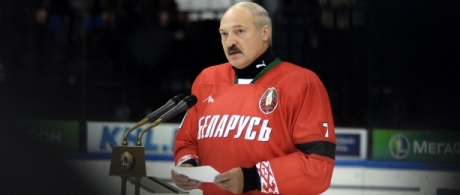Associated Press photographer Anja Niedringhaus was
killed today, shot to death by an Afghan policeman while covering the
upcoming national election. She covered conflicts from Bosnia to
Afghanistan for more than 20 years, earning a Pulitzer Prize in 2005, as
part of a team of AP photographers covering the Iraq War. Last November
I was very happy to be able to feature her amazing work in a photo
essay titled "Afghanistan: Seen Through the Lens of Anja Niedringhaus."
What I wrote then remains true: Documenting a decades-long story like
the Afghanistan War is a challenge for any photojournalist, from simple
logistical issues, to serious safety concerns, to the difficulty of
keeping the narrative fresh and compelling. Niedringhaus did a
remarkable job, telling people's stories with a strong, consistent
voice, an amazing eye for light and composition, and a level of
compassion that clearly shows through her images. A remarkable voice has
been lost today. [30 photos]
Παρασκευή 4 Απριλίου 2014
Ι. Κασουλίδης: Η Αμμόχωστος «κλειδί» για τη λύση του Κυπριακού
«Κλειδί» για την επιτυχή κατάληξη των διαπραγματεύσεων για το Κυπριακό χαρακτήρισε την επιστροφή της περίκλειστης πόλης της Αμμοχώστου ο υπουργός Εξωτερικών της χώρας, Ιωάννης Κασουλίδης.
Ουκρανία: «Kατεπείγουσες» συνομιλίες με γειτονικές χώρες για το φυσικό αέριο
Η Ουκρανία διεξάγει κατεπείγουσες συνομιλίες με ευρωπαϊκές γειτονικές της χώρες για το ενδεχόμενο να εισάγει φυσικό αέριο από αυτές, μετά τις «πολιτικές» αυξήσεις της τιμής του προϊόντος που επέβαλε η Ρωσία, δήλωσε ο μεταβατικός Ουκρανός πρωθυπουργός Αρσένι Γιατσενιούκ σήμερα.

Είναι επείγον να εξασφαλιστεί η προμήθεια αερίου σε προσιτή τιμή για την Ουκρανία, μετά την κατάργηση των εκπτώσεων που προσέφερε η Μόσχα στο Κίεβο, με αποτέλεσμα η τιμή της ενέργειας σχεδόν να διπλασιαστεί μέσα σε τρεις ημέρες, επισημαίνουν αναλυτές.
Can the EU help Belarus to guard its independence?
Belarus is the forgotten member of the EU’s Eastern Partnership. The EU has negotiated ‘action plans’ with the other five members – Armenia, Azerbaijan, Georgia, Moldova and Ukraine. These involve the EU promising benefits in return for commitments to reform. And of those five, all but Armenia and Azerbaijan have signed or will sign association agreements with the EU. Belarus has been excluded because of its human rights record. However, following Russia’s annexation of Crimea, both Minsk and Brussels are thinking seriously about a closer relationship.

Events in Ukraine have worried the regime of Alexander Lukashenko, Belarus’s president since 1994. His government, of course, dislikes popular revolutions of the sort that overthrew Viktor Yanukovych in Kyiv. But it also opposes the dismembering of a country like Ukraine. On a recent visit to Belarus, I noticed that officials became visibly nervous when asked about the new ‘Putin doctrine’ – the assertion of Russia’s right to intervene in neighbouring states to protect the interests of Russians or Russian-speakers (ethnic Russians make up 8 per cent of the population of Belarus; everyone speaks Russian but 15-20 per cent also speak Belarusian regularly).

Events in Ukraine have worried the regime of Alexander Lukashenko, Belarus’s president since 1994. His government, of course, dislikes popular revolutions of the sort that overthrew Viktor Yanukovych in Kyiv. But it also opposes the dismembering of a country like Ukraine. On a recent visit to Belarus, I noticed that officials became visibly nervous when asked about the new ‘Putin doctrine’ – the assertion of Russia’s right to intervene in neighbouring states to protect the interests of Russians or Russian-speakers (ethnic Russians make up 8 per cent of the population of Belarus; everyone speaks Russian but 15-20 per cent also speak Belarusian regularly).
WSJ: A European Nation Within Spain Catalonia
 I recently attended the spring conference of
the British Liberal Democrats. The party recommends a "no" vote in the
upcoming referendum on Scottish independence. I was struck, however, by
the language used by Lib-Dem leader Nick Clegg in his final speech: "We
are a family of four different countries," he declared of the United
Kingdom. "I want to see Scotland stay in our family of nations."
I recently attended the spring conference of
the British Liberal Democrats. The party recommends a "no" vote in the
upcoming referendum on Scottish independence. I was struck, however, by
the language used by Lib-Dem leader Nick Clegg in his final speech: "We
are a family of four different countries," he declared of the United
Kingdom. "I want to see Scotland stay in our family of nations." EU Takes Critical Next Step in Banking Union

The European Union has at last proposed what it calls the “second pillar” of its banking union. The first pillar, unveiled last December, consists of proposals for banking reform, aimed at reducing risk in the financial system. This next step proposes a mechanism should those reforms fail and the authorities have to deal with bank failures. Some, including Michael Barnier, the EU commissioner in charge of regulation, have referred to this proposed Single Resolution Mechanism (SRM) as a “revolution” on a par with the adoption of the euro. That characterization surely overstates, as does use of the word “pillar.” Matters on either proposal are far from settled. Still, there is no denying that Europe has taken significant steps toward financial security.
Erdogan’s Kurdish Electoral Gamble Will Reverberate in Turkey and Iraq

On Sunday, Turkey’s ruling Justice and Development Party (AKP) under Prime Minister Recep Tayyip Erdogan racked up an astounding victory in municipal elections. The party’s success came despite waves of civil unrest last year, the economy taking a downturn, daily revelations about corruption in the highest echelons of government and a crackdown on online media. There are many political and socio-economic reasons for the AKP’s dominance, but in Turkey’s Kurdish southeast, Erdogan was able to count on one unexpected campaigner on his behalf: the president of the Kurdish autonomous region in Iraq, Massoud Barzani.
Unrestrained Oil and Gas Is the Future, ExxonMobil Argues

Sunsets over a refinery in Corpus Christi, Texas.
Credit: Jay Phagan via Flickr
Εγγραφή σε:
Σχόλια (Atom)

